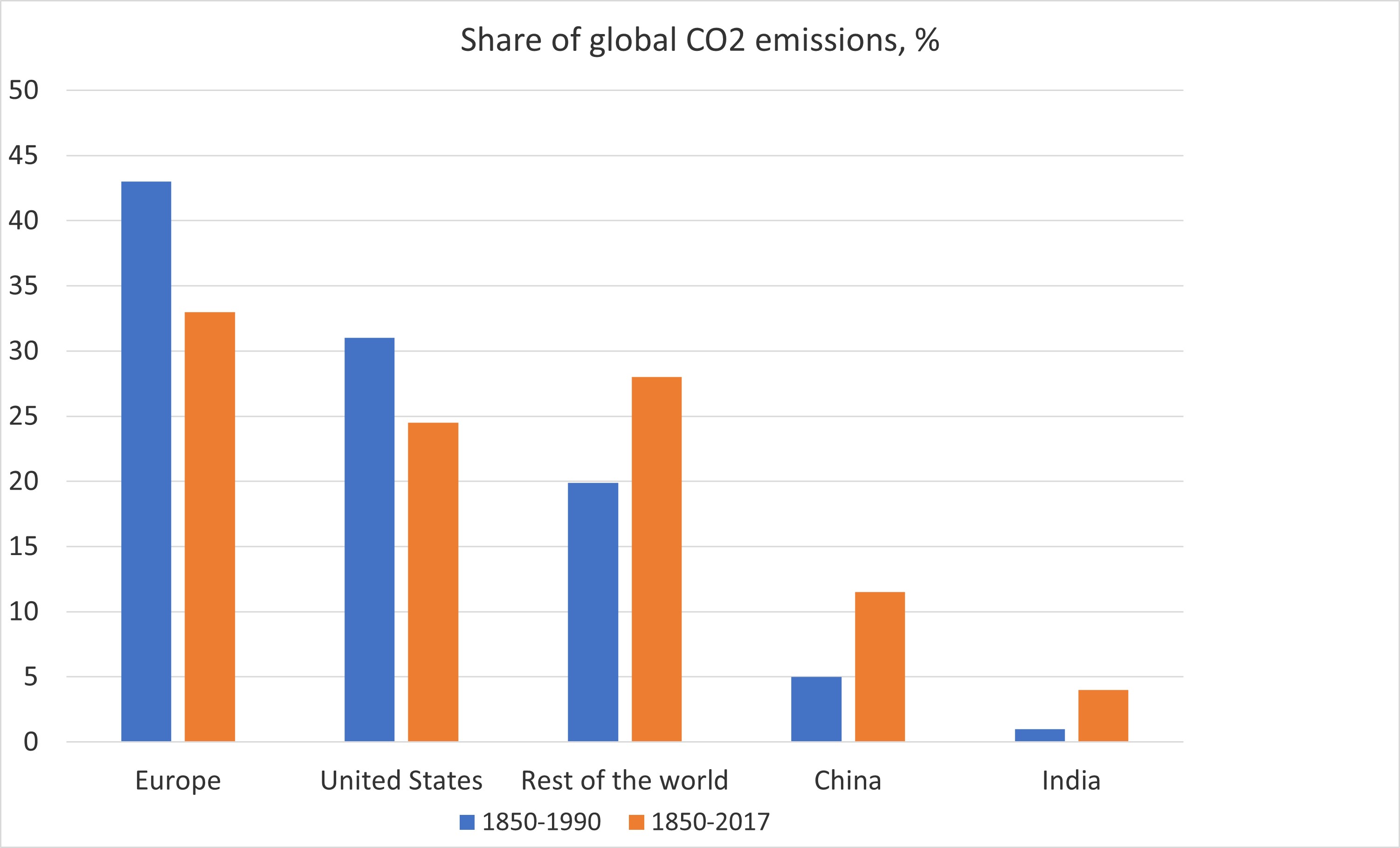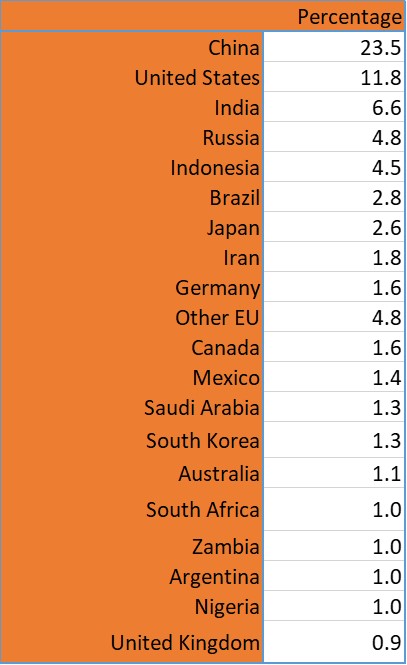We face significant challenges: climate change, COVID-19, an ageing population, inequality, both within and between countries, and the pace of technological change, itself leading to further inequality.
All are critical, but the one that seems to pose an existential threat to humanity –and so is slowly leading to coordinated action –is climate change. There have been three global agreements on reducing climate warming: Kyoto 1977, Copenhagen in 2009 and Paris in 2015.
But real action, not just words, is now needed to slow global warming and to manage the damage that has already been done (see chart 1). Because the effects of global warming from insufficient action of is happening now. These – like ‘heat domes’ –can have lethal consequences, as recent examples in the US and Canada demonstrate.

The need for change
Reconstructing energy supply and production to enable not just net-zero carbon emissions but an actual reduction, will mean significant changes over the coming decades. What can economics tell us about how this should be done? The answer is rather a lot. Fossil fuels drove the industrial revolution, leading to the living standards that we see today, but to maintain them in the future, these fossil fuels must be phased out.
First of all, the polluters have to be taxed. We have understood that a system of taxation is the way to do this since the 1950s ( https://news.mit.edu/2013/emeritus-david-wilson-was-early-proponent-concept-energy-use-fees), creating an incentive for polluters to take action. In addition, changes to the law and government policy to enforce and enact regulatory changes are required. Investments in green technologies to drive costs down will also demand policy action.
Global action required
Analysis of how to pay for this must start with a factually driven view about who is responsible for global warming. Moreover, there needs to be recognition that large swathes of the world are still impoverished, so reducing carbon emissions cannot be equally shared between different countries.
Carbon taxes and or an emissions trading scheme (EMS) do just that. But not every country is equally responsible for the current situation. So, a system that places a more significant burden on those who have historically contributed the most to where we are today and less on those who are currently high emitters but are not primarily responsible for the increase in global warming thus far, is required (see chart 2).

This system can be globally effective, but only if the governments responsible for overseeing those companies have the political will to ensure that any action taken is enforced everywhere.
Harnessing technology
The costs of lowering carbon emissions also mean a fundamental change to the technologies that provide the high living standards that we see around us today in the advanced economies, which emerging economies aspire to. Future technologies will significantly lower the costs of reducing carbon emissions. But it can only be estimated in today’s technology with some discount factor about what the future saving will be.
Discounting future benefits is vital to understand that reductions in carbon gases have advantages beyond lowering global warming, such as benefits to human health and reduced welfare costs at a time when the world population is ageing.
Opportunities and challenges
Creating a just and equitable distribution of any such carbon tax will have implications for economic growth, living standards between countries and societal equality. For example, later this year, energy bill payers may have to start contributing towards the £20bn costs of the nuclear plant at Sizewell B in Suffolk, even before it generates any electricity.
Carbon taxes will mean price rises, and those price rises will hit those who consume more of those products. To avoid a disproportionate effect on the poorest, government subsidies or rebates may be required. The alternative is to create charging bands based on income or profitability. No solution is perfect, carbon tax in a wealthier country could, for example, mean that the production of that product moves to a more impoverished country where the carbon tax may be lower. But challenges can also be opportunities. Countries and firms that develop new technologies fastest would pay a lower carbon tax and benefit from selling more low emission products.
Counting the cost
It does create significant political issues for governments that have promised significant reductions in carbon emissions, to consider and make clear the costs involved and what that means for those who have to pay.
In the UK, the climate change committee (CCC) has estimated the public and private sector costs and savings from decarbonising the economy to achieve net-zero carbon emissions by 2050, a target enshrined in law. This gross figure comes to £1.2 trillion at 2019 prices, of which £344 billion is a cost to the public sector. That may seem like a lot, but of course, dealing with the pandemic has cost the public sector more than £344 billion so far. Moreover, it’s a cost that would be spread over 31 years, to 2050.
It equates to £39 billion a year, some 2% of current GDP. That may seem doable or at least achievable, but it still means upward pressure on public spending in the years ahead, just as the population is ageing. Moreover, the UK currently accounts for just one per cent of global emissions (see table 1).

So, what the rest of the world does is as or more important. Still, UK emissions have fallen by around 40% since 1990. Clearly the cost of doing nothing is infinitely higher. Not acting is no longer an option, as signs proliferate of the effects of excessive carbon emissions. Perhaps the only good news is that this may open up the political room for action.

